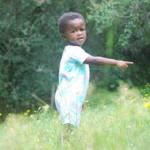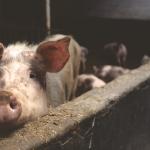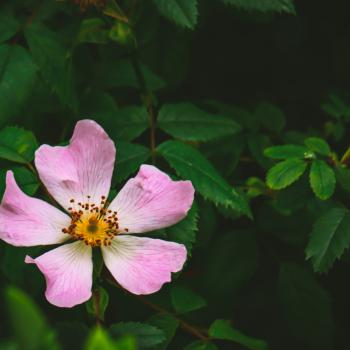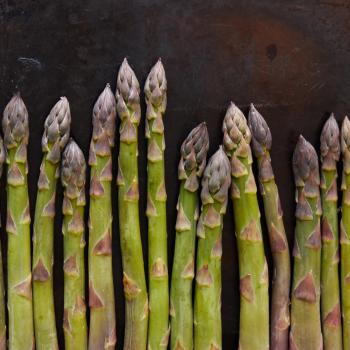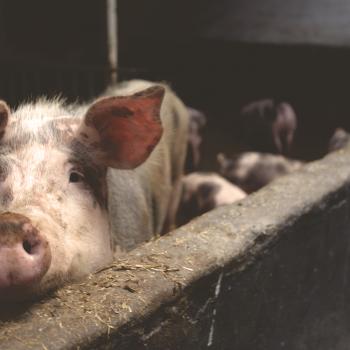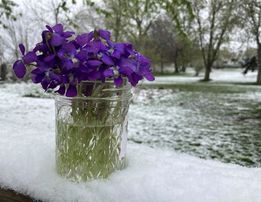
Here in Green Ridge, the snow has been falling thickly since just after dawn. The squirrels don’t seem to mind, leaping clumsily between green branches covered with white. The robins don’t seem to mind, still battling each other in the backyard. The cows and donkeys across the street aren’t surprised either. Very little will deter them from enjoying the chilly grass and hay.
But the humans have been betrayed.
Snow in April is abominable,” said Anne of Ingleside in L.M Montgomery’s famous work of the same name.
“Like a slap in the face when you expected a kiss.”
We lament (every other year) that this year’s snow is too late, too cold and out of the natural order of things. Perhaps even a sinister sign of the changing climate. But in fact, late spring snow has been part of the human experience since ancient times. This is reflected in our literature, our music and our folklore all over the world.
The Farmer’ Almanac refers to a late-spring cold snap as “dogwood winter” and notes that local names for the weather phenomenon usually reflect whatever tree or shrub blooms predominantly in the area: locust winter. Redbud winter. Blackberry winter. Blackberries, especially, are most fruitful if subjected to a period of cold weather, and so this name stuck in many regions. Some places in Appalachia and the deeper South recognize all of them, claiming four or even five “little winters.” Far from being rare, the Almanac notes that a blackberry winter weather event occurs historically in about 50 percent of years.
In the 20th century, blackberry winter has been the subject of both word and song. It is the name of the band that recorded the soundtrack for the hillbilly drama Winter’s Bone and a mid-century jazz standard. It’s the title of anthropologist Margaret Mead’s autobiography and a famous Depression-era short story.
Farther back than that, an early fall or late spring snow was memorialized in folklore as “poor man’s fertilizer,” and savvy farmers plowed it into their fields. Modern science has confirmed what our ancestors observed: snow contains nitrogen. Blackberry winters were recorded in newspapers in the 1800s and in the journals of gentlemen farmers of the 1700s. Future President George Washington took note on May 4, 1774: “very cold and spits of snow all day with the wind blowing hard at NoWest.”
Even in ancient times, blackberry winter was noted and mythologized. In Vietnam, Rét nàng Bân (Miss Ban’s Winter) tells the tale of a hapless housewife upon whom the Jade Emperor has pity, extending the winter so she can complete her husband’s braided shirt. Today, a March snow in Vietnam is anthropomorphized as “Miss Ban.”
Our dismay over a late-spring snow is warranted. A hard freeze this week will kill tender plants and orchard blossoms in many parts of the country, crippling small farmers and making homegrown fruits scarce. We should pray to Saint Dorothy, patroness of fruit and flowers, that God spares at least some of this beauty and bounty. But of all God’s creatures, modern man is the only one whose memory is short enough to be surprised by blackberry winter. As we watch the April snow fall, let it be a humbling reminder. In all humanity’s modern glory, we still forget even the reality of the seasons. We are powerless against the whims of Mother Nature. We are still entirely dependent on the mercy of the Lord.

